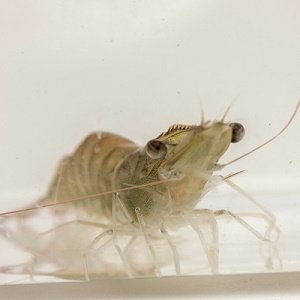
A study explores a novel technique (temperature training) to improve the growth and disease resistance of postlarvae (PL) of whiteleg shrimp (Litopenaeus vannamei), a commercially important species.
Scientists from the Institute of Oceanology (China), the Marine Science Research Institute of Shandong Province and the University of Chinese Academy of Sciences determined an appropriate temperature restriction mode through temperature training to achieve greater compensatory growth potential in the white shrimp (Litopenaeus vannamei).
The challenge: optimizing shrimp growth
Shrimp farmers face a constant struggle to maximize the growth rates of PL shrimp, a critical stage in their development. Traditionally, efforts have focused on water quality and feed optimization. This study explores temperature as a potential tool to unlock shrimp’s natural ability to “catch up” after a period of restricted growth, a phenomenon known as catch-up growth.
The Experiment: Training for Growth and Resilience
The study investigated the effects of two temperature regimes on PL shrimp:
- Low Temperature Group (25°C): The shrimp were exposed to a cooler environment for 20 days (restriction stage).
- High temperature group (31°C): Shrimp were exposed to a warmer environment for 20 days.
After the restriction stage, both groups were transferred to a control temperature (28°C) for another 20 days (compensation stage).
The results: a win-win situation for shrimp producers
The study’s findings are promising for shrimp producers:
- Compensatory growth: Shrimp in the low temperature group exhibited significant “catch-up” growth during the compensation stage, even exceeding their initial growth potential (overcompensation).
- Improved disease resistance: Shrimp in the low temperature group showed increased resistance to Vibrio parahaemolyticus, a common bacterial pathogen in shrimp aquaculture.
- Molecular information: Gene expression analysis revealed changes in key pathways related to energy metabolism, protein synthesis and cell growth during the low temperature restriction and recovery period. This information can be used to optimize feeding strategies for maximum growth benefits.
High temperatures are harmful
The study also found that high temperature restriction had negative consequences:
- Reduced growth: Shrimp in the high temperature group showed lower growth rates throughout the experiment.
- Increased susceptibility to disease: These shrimp were more susceptible to Vibrio parahaemolyticus infection compared to other groups.
Benefits for aquaculture practices
This study demonstrates the potential of low temperature training as a valuable tool for shrimp producers. By implementing this technique, farmers can:
- Improve growth rates: Promotes faster growth and higher yields in PL shrimp L. vannamei.
- Improves disease resistance: Reduces losses due to bacterial infections.
- Optimize feeding strategies: Leverage knowledge of temperature-related changes in shrimp metabolism to develop specific feeding regimens.
Conclusion
“After 20 days of low-temperature training, PL shrimp exhibited significant compensatory growth, which not only promoted growth but also improved the body’s resistance to Vibrio parahaemolyticus,” the scientists concluded.
By harnessing the power of temperature training, shrimp farmers can ensure a healthy and robust shrimp population, contributing to a safer and more productive shrimp industry.
The research was funded by the Natural Science Foundation of Shandong Province and the Research and Investigate Plan of Shandong Province.
Contact
Mei Liu
Qingdao Aquatic Organisms Quality Evaluation and Utilization Engineering Research Center, Shandong Key Laboratory of Disease Control in Mariculture, Marine Science Research Institute of Shandong Province, 7 Youyun Road, Qingdao, 266104, China
Email: mliu_msrisd@126.com
Lei Wang
CAS and Shandong Province Key Laboratory of Experimental Marine Biology, Center for Ocean Mega-Science, Institute of Oceanology, Chinese Academy of Sciences, 7 Nanhai Road, Qingdao, 266071, China
University of Chinese Academy of Sciences, Beijing, China
Email: leiwang@qdio.ac.cn
Reference
Zhao, Z., Liu, Y., Wang, B. et al. A study on the effect of temperature training on compensatory growth and pathogen resistance of post-larval Litopenaeus vannamei. Aquacult Int (2024). https://doi.org/10.1007/s10499-024-01520-5

